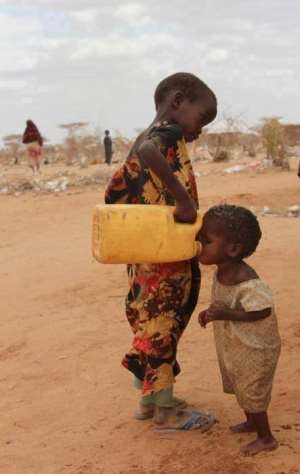
Addressing violence against children has rightly been highlighted as a priority at all spheres of government in South Africa. Experiences of violence (physical, sexual and emotional) and of neglect negatively impact on positive developmental outcomes for children as they grow into adulthood, and often affect them throughout the life-course. Despite the prioritisation of addressing violence against children in the country, there has to date been no study that accurately provides data on the lifetime experiences of sexual abuse, and other forms of maltreatment (abuse and neglect) and violence that children experience in South Africa.
The Optimus Study provides the first-ever nationally representative data in South Africa on child maltreatment and exposure to other forms of violence. 9730 15-17 year old South Africans participated in household and school surveys. In each setting, young people were interviewed about their experiences by trained interviewers, and also given the opportunity to respond to a small set of questions on a more confidential questionnaire they completed themselves.
The initial results show that by the time South African children are 15-17 years old, many of them had already experienced sexual, physical or emotional abuse, neglect, or had been exposed to high levels of family and community violence. More specifically:
• One in five (19.8%) young people reported having experienced some form of sexual abuse in their lifetimes. This was true for both boys (20.3%) and girls (19.2%).
• More than a third (34.4%) of respondents reported having ever been hit, beaten, kicked or physically hurt by an adult who was supposed to be taking care of them;
• A total of 16.1% - one in six young people - reported experiencing emotional abuse. Girls reported higher rates than boys.
• One fifth (21.3%) of respondents reported experiencing any form of neglect ever in their lives.
• One in five (23.1%) young people had ever witnessed violence perpetrated by an adult caregiver against a sibling or another adult in their homes.
Consequences of these forms of abuse are serious, and have implications both for the young people who suffer them, and for national development. These problems cost the country enormously, both in terms of the costs of treating these problems, and in lost economic productivity. Reducing violence against South African children is both a moral imperative (to protect our children) and an imperative for national development. It can and must be achieved.
Dr Alexander Butchart, Prevention of Violence Coordinator at the World Health Organization (WHO) in Geneva, Switzerland, highlighted the importance of such surveys. “Much violence against children is never reported to the police, health care workers, or child protection authorities. Surveys such as this are therefore the only way to get a good picture of the ‘what, when, where and by whom’ of violence against children. Such information is crucial for designing and monitoring prevention programmes and services for victims”. Butchart further noted that the WHO Global status report on violence prevention 2014 identified the lack of a nationally representative survey of child maltreatment in South Africa as a big gap, which this survey does much to fill. “The onus now is on government, civil society organizations and researchers to ensure that the survey findings are followed up by concrete prevention action and steps to improve services for victims”, he added.
The Optimus Study was funded by the UBS Optimus Foundation.
The initial results of the study are to be launched at an open seminar in Pretoria on Friday 31st July 2015, at Freedom Park, starting at 10h00. The launch will be followed by a light finger lunch.
Members of the press and all other interested parties are invited to attend.
The research bulletin published today is not the final research report on the findings of this national study. A comprehensive publication of the research findings will follow that will also include information about incidence of child maltreatment, perpetrators, risk factors and child protection agency responses. This bulletin is instead a summary of the study’s key findings about prevalence. It shows that South African children and adolescents experience high levels of child maltreatment (abuse and neglect) and violence, and thus highlights the critical need for a national (re)focus on both prevention and intervention.




 Lay KPMG audit report on SML-GRA contract before Parliament – Isaac Adongo tells...
Lay KPMG audit report on SML-GRA contract before Parliament – Isaac Adongo tells...
 Supervisor remanded for stabbing businessman with broken bottle and screwdriver
Supervisor remanded for stabbing businessman with broken bottle and screwdriver
 NDC watching EC and NPP closely on Returning Officer recruitment — Omane Boamah
NDC watching EC and NPP closely on Returning Officer recruitment — Omane Boamah
 Your decision to contest for president again is pathetic – Annoh-Dompreh blasts ...
Your decision to contest for president again is pathetic – Annoh-Dompreh blasts ...
 Election 2024: Security agencies ready to keep peace and secure the country — IG...
Election 2024: Security agencies ready to keep peace and secure the country — IG...
 People no longer place value in public basic schools; new uniforms, painting wil...
People no longer place value in public basic schools; new uniforms, painting wil...
 'Comedian' Paul Adom Otchere needs help – Sulemana Braimah
'Comedian' Paul Adom Otchere needs help – Sulemana Braimah
 Ejisu by-election: Only 33% of voters can be swayed by inducement — Global InfoA...
Ejisu by-election: Only 33% of voters can be swayed by inducement — Global InfoA...
 Minority will expose the beneficial owners of SML, recover funds paid to company...
Minority will expose the beneficial owners of SML, recover funds paid to company...
 Prof. Opoku-Agyemang has ‘decapitated’ the NPP’s strategies; don’t take them ser...
Prof. Opoku-Agyemang has ‘decapitated’ the NPP’s strategies; don’t take them ser...
